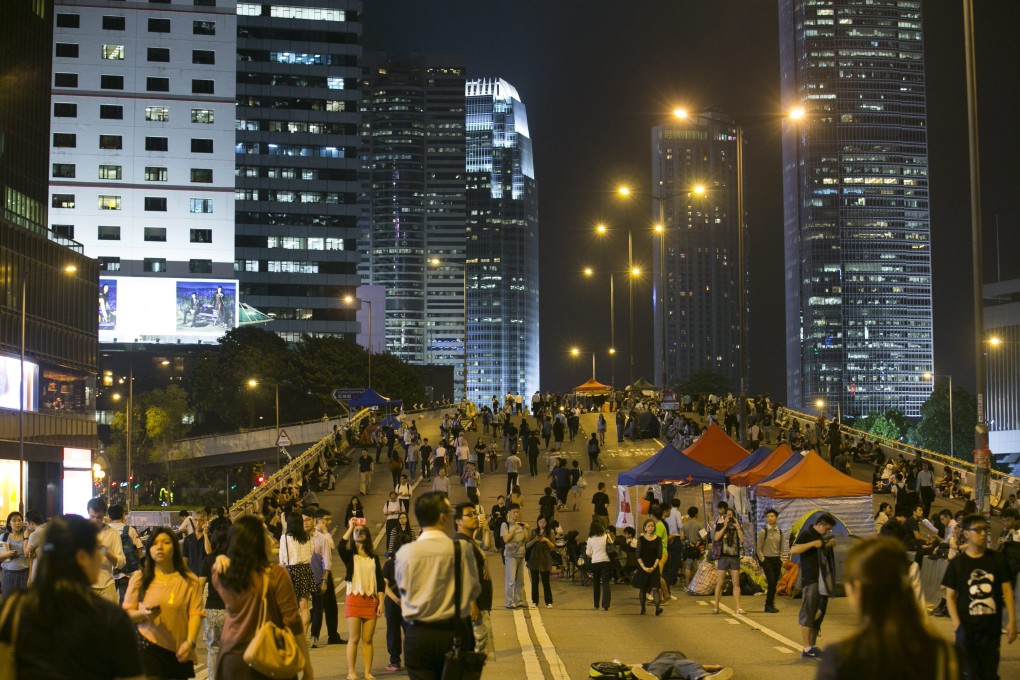Protesting students have much to learn about compromise
By pushing the city to the brink of anarchy, democracy campaign is becoming a lost cause

Hongkongers are not known for their sophisticated understanding of the intricacies of politics. But it has always been their folk genius to know where interest lies.
And it is by doing the right things - things that are useful, advantageous and constructive - time and again that the small city transformed itself into one of the world's financial centres.
There is a reason Hong Kong is often cited by economists as a showcase for the superiority of free-market capitalism: the profit motive, the engine that drives capitalism, is in our genes.
If today's "occupied Hong Kong" is almost unrecognisable, it's because people living here seemed to decide, all of a sudden, that the idea of enlightened self-interest was a joke and chucked it out the window. These people may be the minority, but there is nothing the majority can do - except watch their long-term interests being trampled on and cry: "Look what you've done to my city!"
This is not to say Hong Kong can only be an "economic city" and its people should concern themselves only with the pursuit of money. But if Hongkongers are to give up their pragmatism to become ideologues, and can only think in terms of fear and ideology, any plans that they may come up with will almost certainly be a recipe for disaster.
By now, it should be very clear what the Occupy movement is really about. It's about saying no to the National People's Congress and giving Hong Kong people self-determination. To all intents and purposes, the Occupy movement is nothing less than a secession movement. That's why Beijing's steadfast opposition to it is guaranteed.